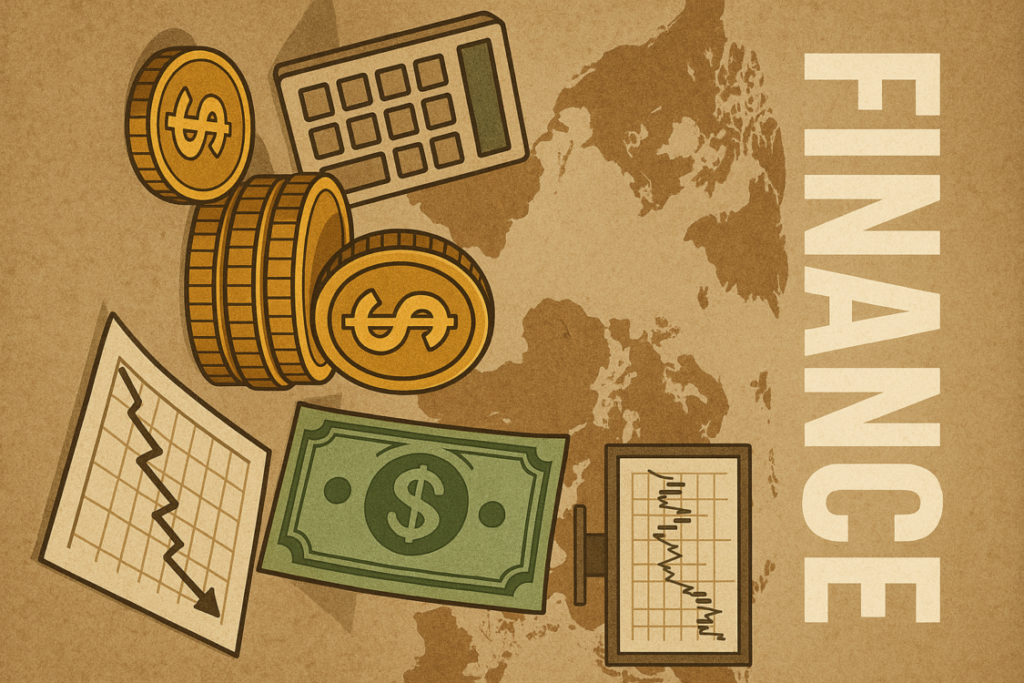Table of Contents
Why Deep Financial Literacy Matters
Money. It’s the fuel for our ambitions, the buffer against life’s shocks, the foundation of security, and often, a source of profound stress and anxiety. Yet, despite its pervasive influence on nearly every aspect of our lives, financial literacy – the understanding of how money works in the world – remains alarmingly undervalued and under-taught. This isn’t just about balancing a checkbook; it’s about understanding the fundamental forces shaping your present and future well-being. Learning finance deeply isn’t a niche skill for Wall Street professionals; it’s critical life armor for everyone.
Empowerment & Control
Financial ignorance breeds vulnerability. Without understanding concepts like compound interest, debt structures (good vs. bad), risk management, and inflation, you are at the mercy of others – predatory lenders, misleading marketing, or simply the erosion of your purchasing power over time. Deep literacy empowers you to make informed decisions, negotiate better terms, and take control of your financial destiny. You move from being reactive to proactive.
Navigating Life’s Inevitabilities
Life throws curveballs: job loss, medical emergencies, unexpected repairs, aging parents, or the desire for higher education. Deep financial understanding allows you to:
- Build Resilience: Create emergency funds and understand insurance to weather storms.
- Plan Strategically: Save effectively for major goals (homeownership, retirement, children’s education) by understanding investment vehicles, asset allocation, and tax implications.
- Manage Debt Wisely: Avoid crippling high-interest debt, strategically leverage good debt (like manageable mortgages), and create effective repayment plans.

Exploiting Opportunity, Not Being Exploited
The financial world is complex, filled with products, services, and advice of varying quality and motivation. Deep literacy allows you to:
- Evaluate Investments: Understand stocks, bonds, mutual funds, ETFs, and alternative assets beyond surface-level hype. Assess risk vs. return realistically.
- Spot Scams & Bad Deals: Recognize red flags in financial offers, contracts, and “get-rich-quick” schemes.
- Optimize Finances: Minimize taxes legally, maximize returns on savings, and ensure your money is working as hard as possible for you.
Achieving True Freedom & Security
Ultimately, deep financial literacy is the path to financial freedom. This doesn’t necessarily mean extreme wealth; it means having enough resources and understanding to make life choices based on your values and desires, not financial constraints. It means security in retirement, the ability to pursue passions, provide for loved ones, and reduce the chronic stress that financial uncertainty creates (studies consistently link financial stress to poor physical and mental health).
- Understanding the World: Finance is the lifeblood of the global economy. Understanding concepts like monetary policy, fiscal policy, market cycles, and international trade provides crucial context for world events, political decisions, and societal trends. It makes you a more informed citizen and participant in the economy.
Why We Must Learn It
- It’s Not Taught Enough: Formal education systems often fail to provide practical, in-depth financial education. Relying on parents or trial-and-error is insufficient and risky.
- The Stakes Are High: Poor financial decisions can lead to decades of debt, ruined credit, inability to retire, bankruptcy, and immense personal and familial stress.
- The Cost of Ignorance is Massive: Financial illiteracy costs individuals thousands, even millions, of dollars over a lifetime through higher interest payments, missed investment opportunities, fees, and poor purchasing decisions.
- Complexity is Increasing: Financial products and the economic landscape are becoming more complex. Passive knowledge won’t suffice; active understanding is required.
- It’s a Foundational Life Skill: Just like reading, writing, or basic health knowledge, understanding personal finance is fundamental to navigating adulthood successfully and independently.
Moving Beyond the Basics
Deep financial literacy goes beyond budgeting apps. It involves understanding:
- Time Value of Money & Compounding: How money grows (or debts explode) over time.
- Risk & Return: The fundamental trade-off in all financial decisions.
- Asset Classes & Diversification: How different investments work and why spreading risk is crucial.
- Debt Structures & Costs: The true cost of borrowing and different types of debt.
- Taxation Strategies: How taxes impact income, investments, and retirement.
- Behavioral Finance: How psychology influences financial decisions (often negatively).
- Estate Planning Fundamentals: Protecting and transferring wealth.
The Investment in Yourself
Learning finance deeply is an investment with unparalleled returns: security, freedom, reduced stress, and the power to shape your life on your terms. It requires effort, curiosity, and continuous learning as the landscape evolves. But the cost of ignorance is far greater. Start today – read books, take reputable courses, follow credible financial news, seek fee-only fiduciary advice when needed. Make financial literacy a lifelong pursuit. Your future self will thank you profoundly. It’s not just about money; it’s about taking control of your life’s trajectory.




